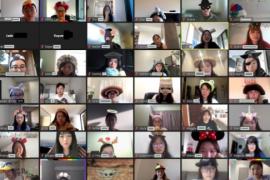In an era where generative artificial intelligence (AI) is reshaping the educational landscape, Sydney is pioneering a refreshed approach to assessment and feedback. This initiative is not just about keeping pace with technological advancements but also about enhancing the quality and integrity of our programs. Here, we explore the opportunities and principles underpinning this exciting and crucial shift.
A ‘two-lane’ approach to assessment
We are taking a ‘two-lane’ approach to assessment design in the age of AI:
- ‘Lane 1’ assessments: These are designed to ensure students have mastered the skills and knowledge our programs require. They are supervised and designed for the ‘assessment of learning’.
- ‘Lane 2’ assessments: These motivate students to learn, and teach them to engage responsibly with AI. They focus on productive and responsible participation in an AI-integrated society.
Most of our assessments should be in ‘lane 2’ – that is, they should be assessments that engage students in authentic learning.
This model ensures that we meet Australian Government’s Tertiary Education Quality and Standards Agency (TEQSA) guidance, advocating for inclusive, contextualised, and trustworthy assessments and preparing students for an AI-infused world.
The University’s refreshed assessment principles
We have updated our assessment principles to align with contemporary technologies, best practices, and student skill development with a strong focus on providing students with useful and timely feedback to help them succeed.
- Assessment practices must promote learning, evaluate outcomes and facilitate reflection and judgement. There is renewed emphasis on assessments that promote and measure learning, supported by constructive and timely feedback.
- Assessment practices must be clearly communicated. There is additional emphasis on helping students appreciate how assessment tasks are related to learning outcomes.
- Assessment practices must be inclusive, valid and fair. This reiterates our commitment to standards-based assessment, and provides additional impetus to moderate standards to ensure inclusivity and equity.
- Assessment practices must be regularly reviewed. New emphasis is placed on keeping assessments up to date in alignment with new technology (including AI), and including the student voice in evaluating assessments.
- Assessment practices must be integrated into program design. This newly developed principle introduces the integration of assessment and feedback across the program, supporting student development from enrolment to graduation. There is an emphasis on validation of students’ attainment at various points across a program, through trustworthy and coherent assessment tasks. This principle also reminds us to equip students with skills for their studies and the future, including with appropriate technologies.
- Assessment practices develop contemporary capabilities in a trustworthy way. This newly developed principle focuses on enabling students to develop and demonstrate skills with relevant technologies, whilst ensuring academic integrity. It emphasises the role of assessment practices in helping students build the ability to work ethically with technologies like AI, through assessments that may be unsupervised and serve to motivate and drive learning (‘lane 2’ assessments). It also emphasises the importance of having other assessments that can assure learning, across a program (‘lane 1’ assessments).
Helping to understand how we are going
To help Associate Deans (Education) and other staff keep track of and support assessment redesign, two new fields will appear for each assessment item in Sydney Curriculum.

A selection in the new dropdown field is required, and if you genuinely have not had a chance to consider this, we encourage you to select the ‘Not considered’ option so that the appropriate supports can be made available.
There are various combinations of these two fields:
- Secured assessment, generative AI not allowed: This is a typical ‘lane 1’ assessment for the ‘assessment of learning’. Optimally, these assessments would be designed at the program level and serve to confirm attainment of program learning outcomes. These assessments should be used sparingly and strategically. They may involve assessment types such as tests/exams, viva voces, or interactive oral assessments.
- Secured assessment, generative AI is allowed: This can also be a ‘lane 1’ assessment, but less common. In some disciplines, we may need to assure that students can use particular generative AI tools under supervised conditions. For example, architecture programs may need to assure that students can use image-based generative AI tools.
- Unsecured assessment, generative AI not allowed: This combination is invalid, because there is no reliable way to prevent or detect the use of generative AI in an assessment that is not supervised.
- Unsecured assessment, generative AI is allowed: This is a typical ‘lane 2’ assessment. These should comprise most of our assessments. They are ‘assessment for learning’, and serve to motivate and engage students in learning through the process of assessment. We should encourage and support the appropriate, responsible, and productive use of AI in these assessments.
Supporting you to reimagine assessment and feedback
To facilitate these changes, the University offers numerous resources:
- Modular Professional Learning Framework (MPLF): Module 05 now includes content on AI challenges and opportunities in assessment. University of Sydney staff can access the MPLF on Canvas.
- Workshops on AI and assessment design: Stay informed about AI developments and their potential in enhancing your teaching methods. We will be adding more of these in the new year to our events page.
- 1:1 consultations: Educational designers are available for one-on-one sessions to refine your assessment and feedback strategies. University of Sydney staff can access these consults here.
Within our faculties and schools, we are also fostering a network of champions to assist in evaluating and evolving current assessment practices.
Moving forward together
The path ahead is both challenging and exciting. By working together, we can adapt to the evolving environment and lead the way in innovative and effective teaching and assessment practices. Tackling this challenge will allow us to ensure our students are equipped for success in an AI-integrated future.






3 Comments